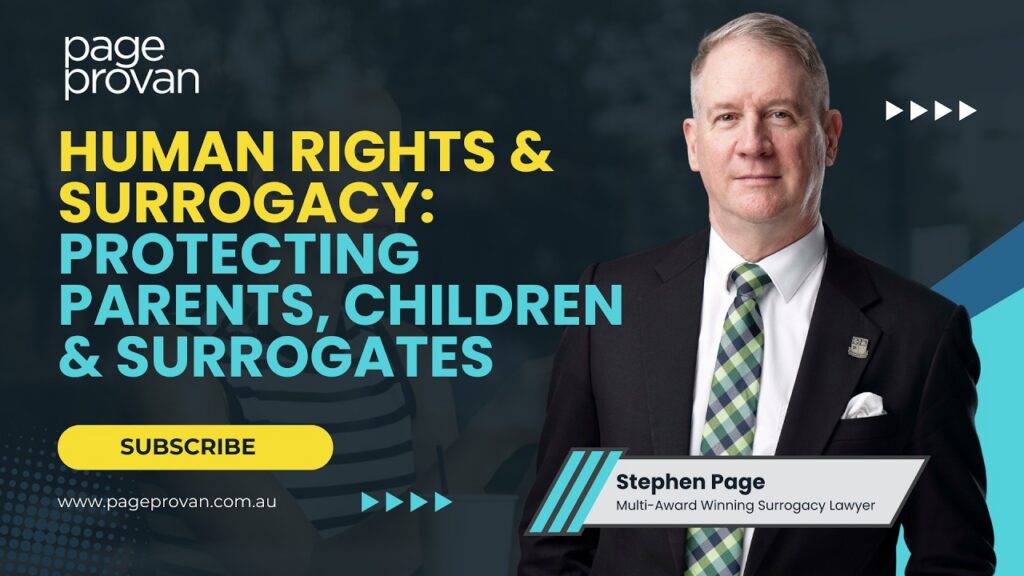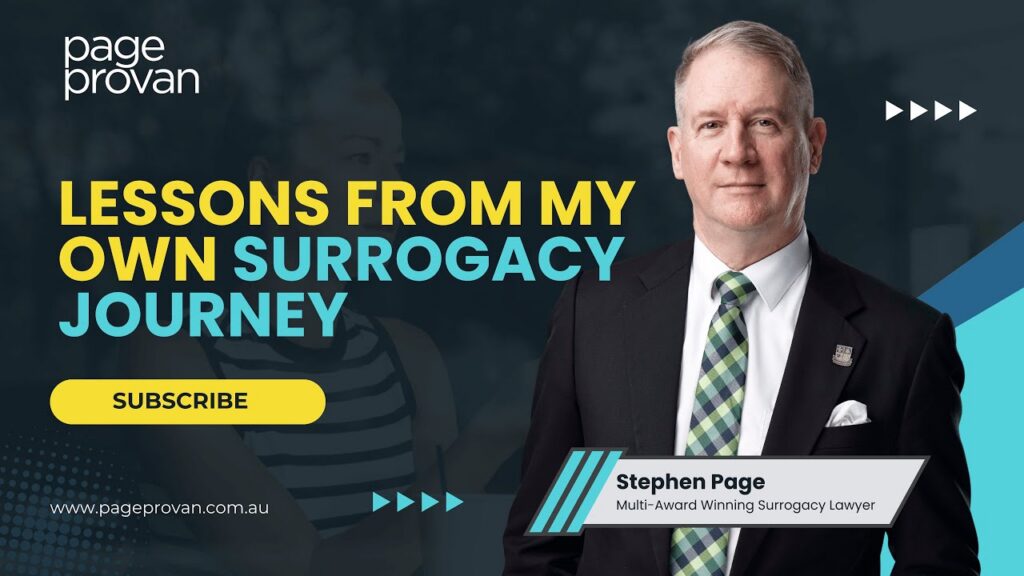Wednesday, March 20, 2013
Australian Attorney-General Mark Dreyfus has opened the Sixth World Congress on Family Law and Children’s Rights in Sydney today. In his speech he lauds the achievements of the Gillard government in protecting children, including amending the Family Law Act to prioritise the protection of children, a national apology on forced adoptions, and the appointment of the first National Children’s Commissioner. Here is his speech:
I would like to acknowledge the traditional owners of the land on which we meet, and pay my respects to their elders, past and present.
This is my first World Congress, and the first as Attorney-General of Australia, and I am heartened to see so many participants here today from countries around the world.
I’d like to acknowledge Chief Justice Bryant from the Family Court and other distinguished guests from Australia.
And of course, we are honoured to also have with us distinguished members of the legal community from around the world, marking this as a truly international meeting.
Our international guests include the Honourable Justice Adel Omar Sherif of the Supreme Court of Egypt, Her Excellency Chan Sotheavy, Secretary of State at the Cambodian Ministry of Justice, Chief Justice Ingram from the Marshall Islands, the Honourable Deputy Chief Justice Gibbs Salika from Papua New Guinea, and Justice Sen of the Supreme Court of India, to name just a few.
On behalf of the Australian Government, I am delighted to welcome everyone here to Sydney, Australia, and the sixth World Congress on Family Law and Children’s Rights.
I begin by quoting former South African President Nelson Mandela who in 1995 observed, “There can be no keener revelation of a society’s soul than the way in which it treats its children.”
These words capture the purpose of the World Congress, providing us with the opportunity to examine exactly how we are treating our children, their physical and emotional protection, their welfare, and their fundamental right to achieve their potential.
I am particularly delighted to welcome the World Congress back to Australia, for the first time since it its inception twenty years ago in Sydney in 1993.
In those 20 years, the World Congress has developed a reputation as a hard-hitting and effective advocate for the rights of children. It is led by a Board and Advisory Group of eminent leaders in the fields of family law and children’s rights. It has achieved much in these twenty years, leading the way in raising awareness about the horrors of child sex tourism, the use of children in war, child slavery, and even more importantly, what we can do to fight these scourges.
Since the World Congress last met in 2009 in Canada, I am proud that the Australian Government has continued to take new initiatives to recognise the rights of children and to promote their well-being.
In February this year, I was honoured to join Prime Minister Julia Gillard and the Minister for Families and Community Services, Jenny Macklin, to announce the appointment of Ms Megan Mitchell as Australia’s first National Children’s Commissioner. I also acknowledge my predecessor, Nicola Roxon, who worked for many years to make this vital appointment a reality.
The National Children’s Commissioner is the first dedicated advocate for children and young people at the federal level.
The Commissioner will independently examine relevant Commonwealth legislation, policies and programs that relate to children’s rights, wellbeing and development, as well as national or cross-jurisdictional matters that would benefit from national leadership.
The Commissioner can consult directly with children and their representative organisations, which will ensure they can influence the development of policies and programs that affect them at the Commonwealth level.
Ms Mitchell commences her new role on 25 March 2013, just one week away, and the Government looks forward to working with her as she advocates for the rights of children and young people nationally.
Ms Mitchell may, as part of her new duties, examine recent legislation introduced by this Government to amend the Family Law Act to better protect victims of family violence, especially children.
These amendments were brought forward by the Gillard Government for one purpose: to unambiguously prioritise the safety of children in all parenting matters.
As well as raising that consideration as paramount, the reforms involved:
• changing the meaning of ‘family violence’ and ‘abuse’ to better capture harmful behaviour
• strengthening obligations on family consultants, counsellors, dispute resolution practitioners and lawyers to make child safety their top priority
• ensuring the courts have better access to evidence of family violence and abuse by improving reporting requirements, and
• making it easier for frontline child protection authorities to participate in family law proceedings where appropriate.
In addition, the Family Law Act now incorporates a direct reference to the Convention on the Rights of the Child. This reinforces the relevance of the Convention in interpreting the objects and principles of the Part of the Act about child proceedings.
The result? There can no longer be confusion on the part of the judiciary, parliamentarians or the wider community that the safety of children is the core emphasis of our family laws in relation to children, and that the safety of the child must always take precedence over the wants of the parents.
I would also like to applaud the recent work of the Family Court in so quickly upholding the changes to the Family Law Act by updating the Family Violence Best Practice Principles, which are the key source of practical information and guidance about how Australian family courts address family violence.
But our Family Law Act is only as good as its reach into regional Australia – we can’t have one level of legal protections for children living in our cities, and another for our kids in the country.
That’s why the Australian Government has recently injected an additional $38 million over four years into our courts to ensure they are able to provide the services that regional communities need. This funding increase will directly benefit people using the Family Court of Australia, the Federal Magistrates Court, and the Family Court of Western Australia.
This action reflects the Government’s commitment to maintaining access to justice, particularly for family law services and to people in regional and remote Australia.
In addition to these initiatives, I would like to briefly mention two very useful practical tools commissioned by the Attorney-General’s Department for use by family law practitioners.
First, I am delighted to announce the release of a general screening and assessment tool called “DOORS”, which is short for the Detection of Overall Risk Screen. The DOORS is an evidence based framework that helps professionals detect risks to the safety and wellbeing of people they work with. It is particularly geared to risks to those families exposed to family violence and child abuse.
The Detection of Overall Risks Screen will help professionals develop client safety plans, refer clients to other appropriate services, and make decisions about which people need to go straight to the family law courts to determine parenting issues.
This screening tool will mean that instead of family law professionals relying only on their own questions or intuition about safety and wellbeing issues, they will be able to complement them with well-tested questions and assistance. The tool will be available, for free, to all professionals working with families. You’ll be able to learn more about it during the Congress.
My Department has also just released the online resource “Family Law TermFinder”, which gives plain language translations of the most common terms in family law. It is a small contribution to the ongoing challenge of making the law accessible to all.
TermFinder is an excellent example of a successful partnership between government, the research sector, the legal sector and the services sector, where innovative technology developed by our universities has practical application that benefits Australian families. During this year it will also be translated into Mandarin, Arabic and Cantonese.
Alongside these practical improvements to child protection and support in Australia, we must also acknowledge past wrongs.
This week the Prime Minister will deliver a national apology, on behalf of the Australian Government, to people affected by forced adoption or removal policies and practices.
A motion of apology will be moved in the House of Representatives and the Senate, and proceedings will be streamed live for those who cannot attend in person.
This is an important national event, not only for the thousands of people affected by forced adoption, but also for the whole community.
Another issue that has been of significant recent attention in Australia is the issue of the parentage of children, particularly those born as a result of assisted reproductive technology such as surrogacy.
The Government has asked the Family Law Council to examine the provisions in the Family Law Act that relate to these issues and Council will provide a report to Government later in the year.
Whether you have come from this great city, from somewhere else in Australia or from across the globe for this World Congress, I wish you all the very best for an informative, inspiring and enjoyable experience.
I would like to thank the World Congress Board, the Advisory Group and the Program Committee for their commitment to the organisation of this event. I would also particularly like to thank and acknowledge the co chairs of the World Congress Board, the Honourable Justice Stuart Fowler and the Honourable Rodney Burr. They have given over twenty years of hard work, expertise and compassion towards making the World Congress what it is today.
This Congress contributes to our shared task of creating a better world for our children and the generations that follow.
On behalf of the Government and people of Australia I welcome you, and thank you, for participating in this important event.
Things to Read, Watch & Listen












